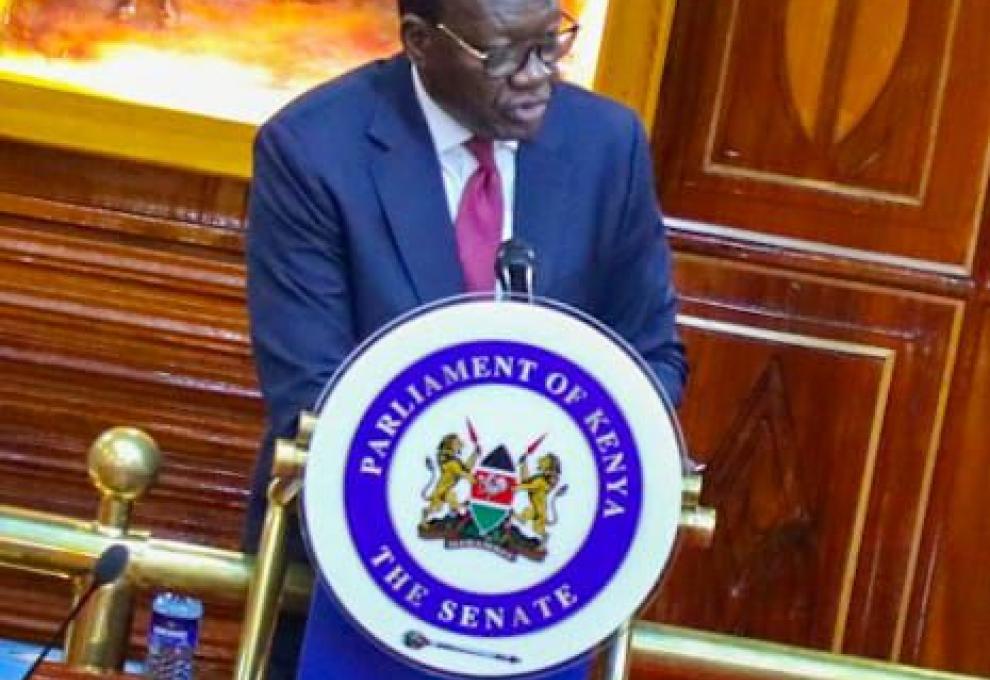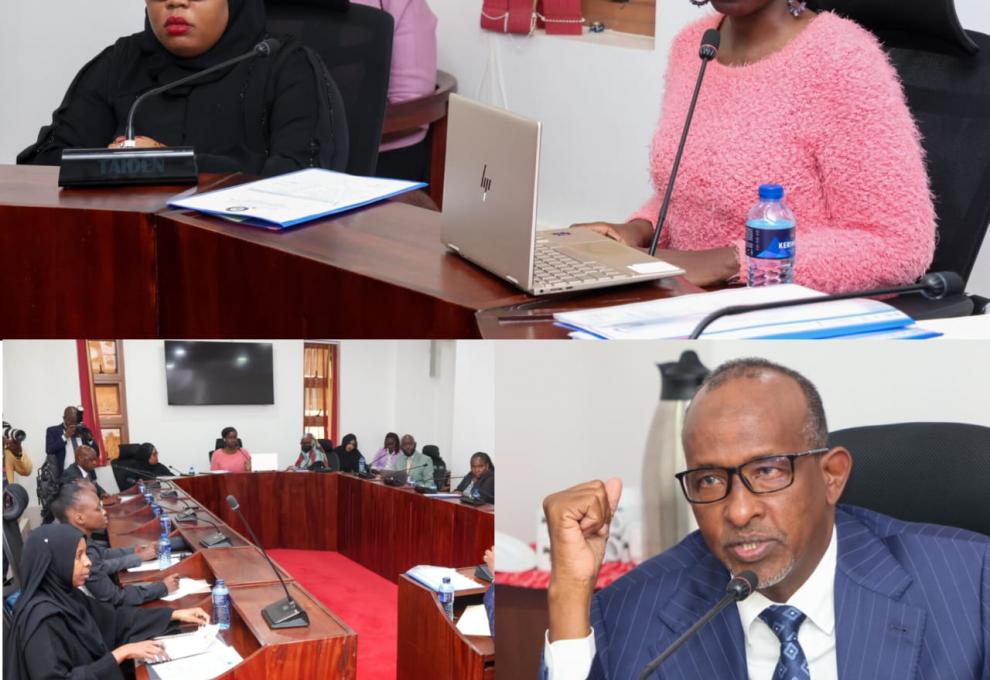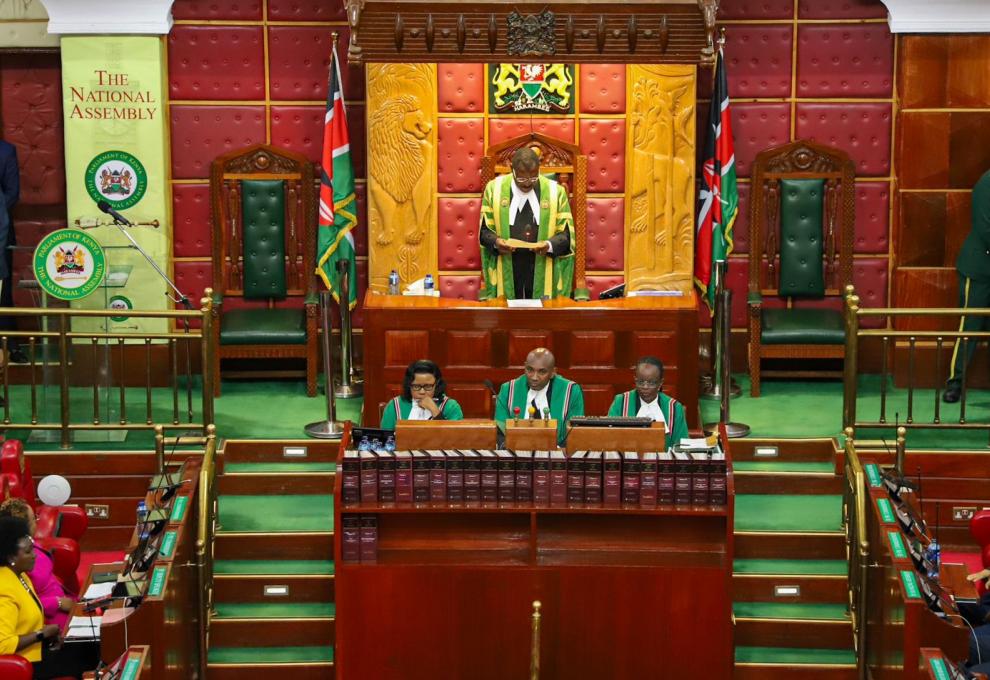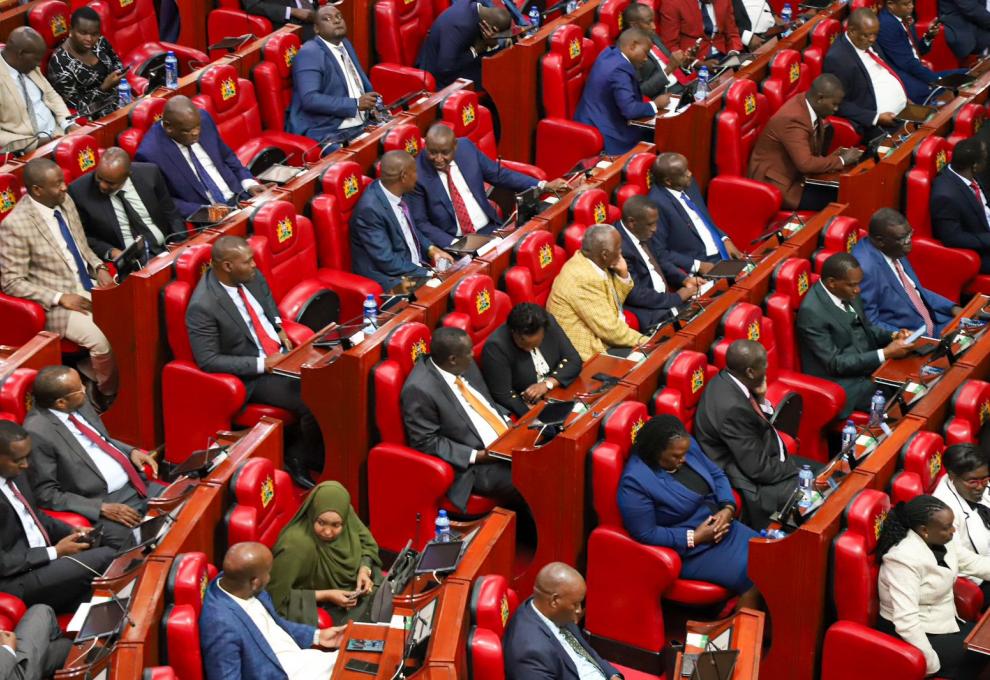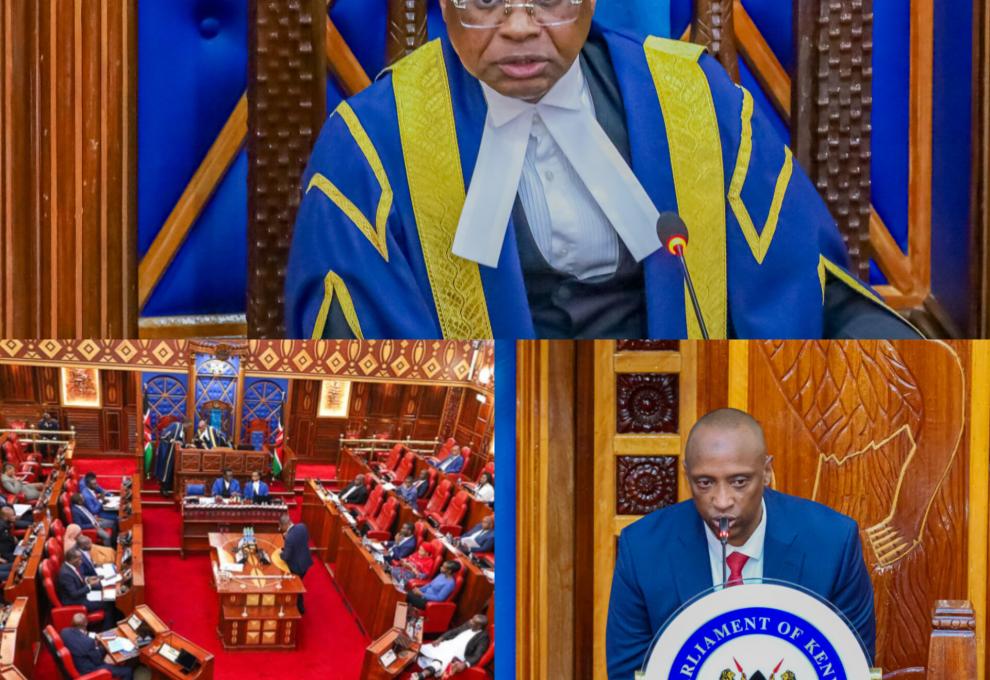STAKEHOLDERS PUSH FINANCE COMMITTEE TO CONSIDER THEIR ALTERNATIVE PROPOSALS ON THE FINANCE BILL, 2023
Machakos County
Friday, May 26, 2024
The Departmental Committee on Finance and National Planning chaired by Hon. Kuria Kimani (Molo) has today continued receiving submissions, five days into the week-long public hearings on the Finance Bill, 2023.
The Petroleum Institute of East Africa when appearing before the Committee proposed a change of the VAT classification from exempt to zero-rated, to facilitate more benefits to the consumer. They argued that zero-rating allows claiming or obtaining refund of VAT on expenses incurred to supply the product, which makes the product cheaper and affordable to most Kenyans.
The Institute of Surveyors of Kenya also presented their proposals against the introduction of withholding tax on rental income collected by agents who have been appointed by the Commissioner. The Institute noted that it will be impractical to remit tax in 24 hours given the logistics required and the jamming of the KRA portal at times. Further, the Institute noted that the Bill does not propose any remedy for landlords who suffer double-withholding tax on the rental income.
The Institute therefore proposed an adjustment of the period to remit tax to 21 days and that the receiver of the rental income tax must be registered by EARB.
The Kenya Airline Pilots Association also shared their views with the Committee on the Finance Bill 2023, where they argued that Kenya is a free-market capitalist economy and therefore the state cannot force members to join the National Housing Development Plan and pay a mandatory contribution towards it.
Further, they told the Committee that most of its members have already secured housing and also, vital information on the project remains unavailable. The association noted that the project does not give members an option to determine the nature of the houses they want and their location.
The association proposed the housing levy be made voluntary to those wishing to own houses under a government programme and also for the government to suspend the housing plan until when there will be an increment in salaries and a reduction in the cost of living.
On their part, the Marketing Society of Kenya (MSK) also made several proposals on the Finance Bill 2023. With regard to the withholding tax rate of 15% on digital content creation, the society said it is discriminatory as other professional fees are charged at 5%. They proposed a provision of tax incentives for content creators who invest in equipment, training and other resources.
They also argued that since the Bill does not specify a threshold for the taxable amount, this means that any income earned from digital content would be subject to taxation and thereforeMSK proposed a tiered taxation system where content creators with lower income levels are subject to a lower tax rate, which would also apply to the Small and Medium-sized Enterprises(SMEs).
MSK also noted that the 15% excise duty on fees that will be charged on advertisement of alcoholic beverages on various mediums will affect the revenue generated by the media sector, as this will lead to a reduction of the marketing expenditure, thereby reducing the advertising revenue ultimately curtailing the local creative economy. In addition, they observed that this would also lead to the transfer of advertising revenue to digital platforms that are international thus prompting a flight of capital from the Kenyan marketing ecosystem.
Binance, a global cryptocurrency exchange company argued that the Digital Asset Tax (DAT) which the Finance Bill 2023 has set at a rate of 3% of the gross receipts from the exchange or transfer of digital assets, will lead to multiple instances of double taxation and will unfairly penalize Kenyan holders of digital assets, as compared to other asset classes.
Further, they decried that DAT would also pose a hefty tax burden on local liquidity providers (market makers) who typically enter into hundreds or thousands of automated transactions per day,aiming to have numerous small-profit trades and is therefore very likely to end up with tax burdens that far exceed any profits they are able to derive from the Kenyan markets.
The Binance Company claimed that DAT is similar to minimum tax, as it is imposed on the gross income and does not take into account losses. Overall, they told the Committee that they feel that DAT will not achieve the intended increment in tax revenue and is likely to stifle the local crypto industry and drive innovation away from Kenya.
The hearings continue tomorrow.











